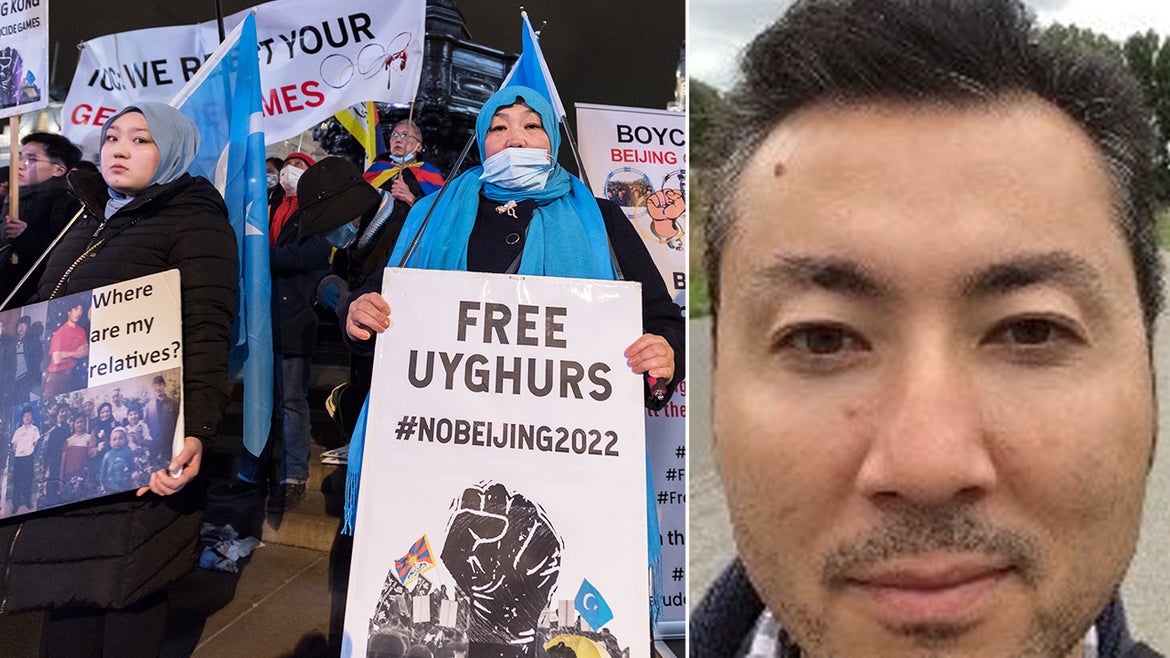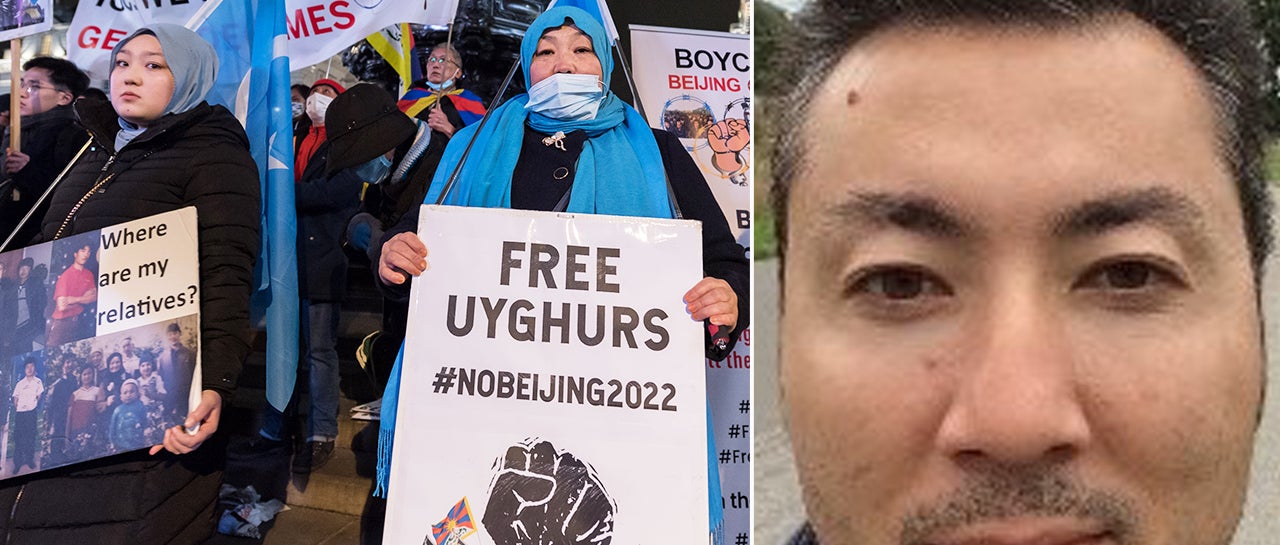Many countries, including the United States, have enacted a diplomatic boycott against this year's Winter Olympics in what the White House called an "ongoing genocide and crimes against humanity in Xinjiang," but Mirehmet Ablet wants to see more done.
The Beijing Winter Olympics are underway, and as countries around the world cheer on their athletes, one man is less impressed with all the excitement. “They are genocide complicit,” Mirehmet Ablet told Inside Edition Digital. “All of them are genocide complicit.”
Ablet is Uyghur, an ethnic minority group that is believed to be being detained by the millions at so-called "re-education camps" in China’s Xinjiang province. Ablet currently lives in Amsterdam. He fled to the Capital of the Netherlands in 2004 in fear of his safety.
“I had a lot of respect for Dutch values … like respect for human rights, equality … until now,” Ablet said.
Survivors of the internment camps, which include other predominantly Muslim ethnic minorities in China, have recounted being interrogated, tortured, sleep deprived, forced into labor and raped, according to interviews done by Amnesty International.
Ablet and many Uyghurs both living within the borders of China and in exile have often remained silent on the issue for fear of their and their family’s safety. But Ablet said in an interview with Inside Edition Digital he is now speaking out in the hopes that his activism will help save his brother Miradil Ablet, who has been imprisoned in a Xinjiang camp since 2018.
This year’s Winter Olympics held in Beijing has been the subject of much debate amid what the White House has deemed an “ongoing genocide and crimes against humanity in Xinjiang,” press secretary Jen Psaki said as she announced the U.S.’ diplomatic boycott.
The boycott also comes on the toes of Chinese tennis star Peng Shuai’s uncertain fate, mounting tension with self-governing Taiwan, an encroaching on Hong Kong’s democratic values and controversy surrounding its early handling over the COVID-19 pandemic.
Australia, Britain and Canada quickly followed in the steps of the United States in declaring a diplomatic boycott of the Olympic games, and other countries including Lithuania, Denmark and Estonia also announcing their own boycotts. More countries, like the Netherlands, have opted not to send delegates in light of the ongoing COVID-19 pandemic.
But Ablet said he believes more should have been done on the part of countries and athletes to send a stronger message to China. “It’s a shame they sent the athletes, and its also a shame for the athletes themselves because they went there,” he said. “They could just miss one Olympic Game. Then at least, the athletes, if they didn’t join, if they didn’t attend this game, they wouldn’t be genocide-complicit.”
During the Opening Ceremony, Dinigeer Yilamujiang, a 20-year-old Uighur cross-country skier representing China, was a main torch bearer.
But Ablet said that for Uyghur, her selection as the torch bearer was “to be expected from the Chinese regime.” He explained that in China’s nearly 75-year occupation of the Xinjiang region, there have been many uprisings from different Muslim minority groups that have been brutally and violently suppressed by the Chinese government.
Each incident would be immediately followed by a push by the Chinese government to promote Uighur arts and culture by showcasing Uighur dance troops on state-run television, “to show the world Uyghurs happily dancing and singing,” he said.
Yilamujiang ultimately placed 43rd in the women’s cross-country 2 x 15km skiathlon event, but was later dropped in the women’s 4 x 5km relay team, Chinese sporting expert Mark Dreyer tweeted.
“It’s possible, of course, that others have been selected above her on form/merit, but we’re told she was chosen as a torch bearer because of her ‘achievements’ so something doesn’t add up,” he said.
As for athletes who may have had more say in their role in this year’s Olympics, Ablet said he is disappointed as he watches them celebrate their medals and accomplishments. “How can they be proud of that? It is a shame. Sooner or later, they will realize what they did is actually against humanity,” he said. “What they did is … shameful. They will realize that soon.”
He said he has attempted to reach out to athletes representing the Netherlands, where he is a citizen, tweeting at them to hear his concerns. "Soon you will realise you will have to live with this guilt for the rest of your lives," he wrote to one athlete. To date, none have publicly responded to his tweets.







